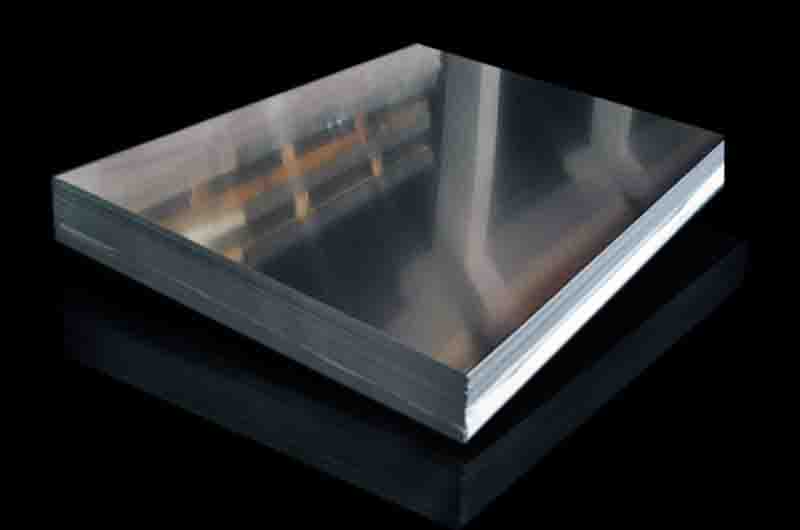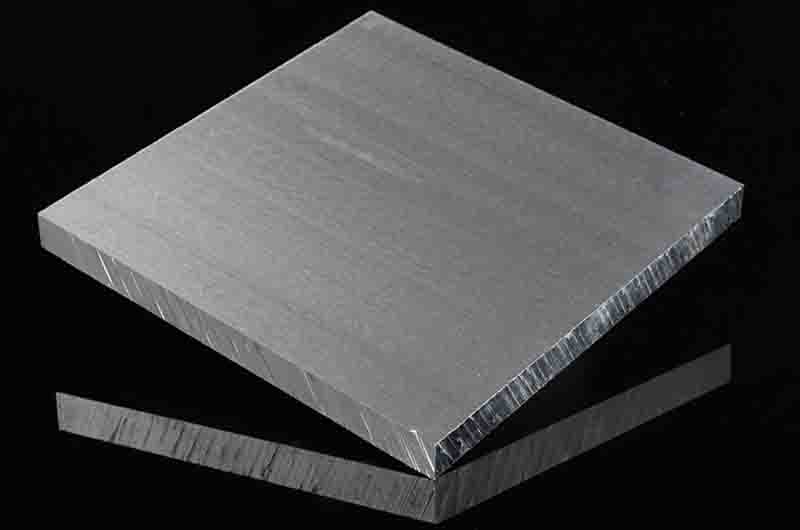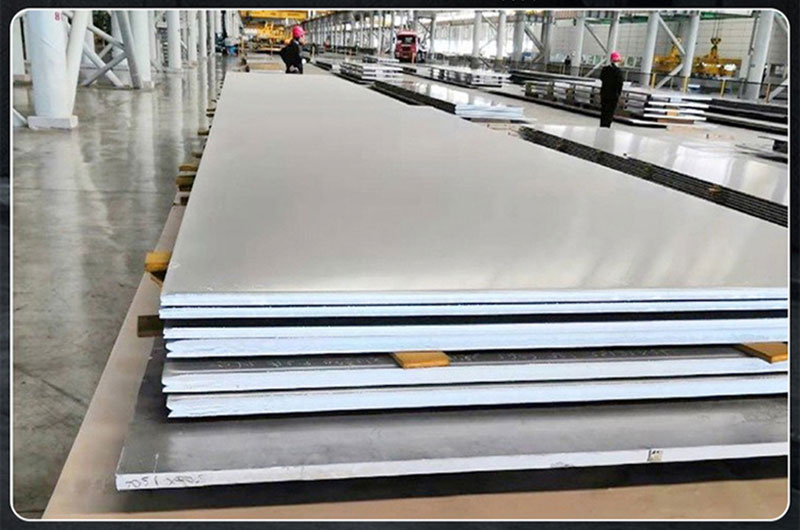7075 T6 Aluminum Plate Sheet
Temper: T651, T62, T652 Strict Control of Tolerances
Is 7075-T6 Aluminum good?
Yes, 7075-T6 aluminum is considered a high-strength and durable aluminum alloy. It has excellent mechanical properties, including high tensile strength and good fatigue resistance.
The "T6" designation refers to the heat treatment process in which the alloy is solution heat treated and artificially aged to achieve its desired properties.
7075-T6 aluminum is commonly used in applications requiring a high strength-to-weight ratio, such as the aerospace, military, and automotive industries. Known for its exceptional strength, stiffness, and toughness, it is suitable for use in structural components, aircraft components, missile components, and other high-stress applications.

7075-T6 aluminum may have limited corrosion resistance compared to some other aluminum alloys. Therefore, when used in environments where corrosion is an issue, appropriate corrosion protection measures such as protective coatings or anodizing may be required.
Overall, 7075-T6 aluminum is highly regarded for its strength and performance characteristics, making it a popular choice for demanding applications that require a lightweight yet strong material.
7075 t6 Aluminum Properties
| Property | Value |
|---|---|
| Tensile Strength | 570 - 640 MPa |
| Yield Strength | 500 - 570 MPa |
| Hardness | 150 HB |
| Elastic Modulus | 70 GPa |
| Density | 2.81 g/cm³ |
| Thermal Conductivity | 130 W/(m·K) |

- Corrosion Resistance: While 7075-T6 aluminum has good corrosion resistance, it is not as corrosion-resistant as some other aluminum alloys. It is prone to stress corrosion cracking in some environments and protective measures such as anodizing or coatings may be required to enhance corrosion protection.
- Machinability: 7075-T6 aluminum is generally considered to have moderate or poor machinability. Compared to some other aluminum alloys, it is more challenging to machine due to its high hardness and tendency to produce small chips during cutting operations.
7075 t6 Aluminum for Sale
| Temper | T6, T651, T62, T652 |
|---|---|
| Thickness | 1.0-300mm |
| Width | 500-3000mm |
| Length | 1000-12000mm |
| Tolerance | Thickness: '+/-.012 to +/-.160 Depending on thickness |
| Width: '+.25 to +.3125 Depending on width and thickness | |
| Length: '+.25 to +.5 Depending on length and thickness | |
| Surface | Polished, bright, paper interlaced, single-sided film, double-sided film |
| Authentication | CE, ISO, SGS, AS9100 |
| Standard | ASTM B209, JIS, GB, DIN, EN, AMS-QQ-250/3, AMS-QQ-250/5, ISO 209 |
| Alloy | Thickness Range |
|---|---|
| 7075 t6 Aluminum Sheet | 0.2 mm - 0.5 mm |
| 7075 t6 Aluminum Plate | 0.5 mm - 2.0 mm |
| 7075 t6 Aluminum Medium Plates | 2.0 mm - 6.0 mm |
| 7075 t6 Aluminum Thick Plates | 6.0 mm - 150 mm |
What is 7075-T6 aluminum used for?
7075-T6 aluminum is used in a wide variety of industries and applications requiring high strength, durability, and lightweight properties. Some common uses for 7075-T6 aluminum include:
- Aerospace: 7075-T6 aluminum is widely used in aircraft structures, fuselage frames, wing components, landing gear, and other critical components in the aerospace industry. Its high strength-to-weight ratio makes it suitable for reducing aircraft weight while maintaining structural integrity.
- Military and Defense: 7075-T6 aluminum is used in military and defense applications, including missile components, bomb racks, armored vehicles, and military aircraft parts. Its strength, toughness and fatigue resistance make it suitable to withstand harsh conditions, and high stress environments.
- Sporting Goods: The high strength and lightweight properties of 7075-T6 aluminum make it popular in the production of sporting goods. It is commonly used in the manufacture of bicycle frames, rock climbing equipment, firearms, and other high-performance sports equipment.
- Automotive Industry: 7075-T6 aluminum is used in the automotive industry for lightweight purposes. It is used to produce high-performance automotive components such as chassis components, suspension components, wheels, and engine mounts, where strength and weight reduction are key factors.
- Machinery and equipment: 7075-T6 aluminum is widely used in various machinery and equipment manufacturing fields. It is used to produce high-strength mechanical parts, tooling, jigs, fixtures, and precision components that require strength and lightweight.
- Shipbuilding industry: 7075-T6 aluminum is used in the shipbuilding industry to build ships, ship components, and ship equipment. Its high strength and corrosion resistance make it suitable to withstand challenging marine environments.
- Other Applications: 7075-T6 aluminum is also used in industries such as robotics, high-performance bicycles, high-end consumer electronics, and precision instruments, where its strength, lightweight properties, and durability are valued.

It is important to note that specific uses for 7075-T6 aluminum may vary depending on the requirements and regulations of each industry or application.
How strong is 7075-T6 aluminum?
Known for its high strength-to-weight ratio, 7075-T6 aluminum is considered one of the strongest aluminum alloys available. The "T6" designation refers to heat treatment processes, including solution heat treatment and artificial aging.
The tensile strength of 7075-T6 aluminum is typically around 570 MPa (83, 000 psi) to 640 MPa (93, 000 psi). This means it can withstand a significant amount of tensile stress before reaching the breaking point. Exact strength may vary based on factors such as alloy composition, manufacturing process, and testing methods.
In addition to high tensile strength, 7075-T6 aluminum has good fatigue strength, allowing it to withstand repeated load cycles without failure. This makes it suitable for applications requiring high strength and durability.
It's worth noting that while 7075-T6 aluminum is very strong, its strength may be compromised under certain conditions, such as high temperatures or corrosive environments. It is recommended to consider these factors and consult with a materials expert or application-specific engineering guidelines to ensure proper utilization and performance of the material.
Which is better 6061 or 7075 aluminum?
The choice between 6061 and 7075 aluminum depends on the specific requirements of your application. Here are some key points to consider:
- Strength: 7075 aluminum has a higher strength than 6061 aluminum. It has high tensile strength and yield strength and is suitable for applications requiring greater structural strength and load-carrying capacity.
- Weight: Both alloys are relatively low in density, but 7075 aluminum is slightly denser than 6061 aluminum. If weight reduction is a key factor, 6061 aluminum may be preferred as it offers a good balance of strength and lightweight properties.
- Machinability: 6061 aluminum is generally easier to machine than 7075 aluminum. It has better chip formation and reduces tool wear during machining. If your application involves extensive machining operations, 6061 aluminum may be a better fit.
- Corrosion resistance: 6061 aluminum has better corrosion resistance than 7075 aluminum. It has good resistance to atmospheric conditions, moisture, and certain chemicals. On the other hand, 7075 aluminum may require additional corrosion protection measures such as coating or anodizing in corrosive environments.
- Weldability: Both alloys can be welded, but 6061 aluminum is generally considered easier to weld than 7075 aluminum. 6061 aluminum has good weldability and is often used in welded structures. Due to the higher strength and susceptibility to heat-affected zone (HAZ) cracking of 7075 aluminum, special welding techniques and precautions may be required.
- Cost: Generally speaking, 6061 aluminum is more cost-effective than 7075 aluminum. The higher strength and specific properties of 7075 aluminum lead to its higher cost.
The choice between 6061 and 7075 aluminum depends on the specific requirements of your application, including desired strength, weight, machinability, corrosion resistance, and budget constraints. Consultation with a materials engineer or specialist is recommended to determine the best alloy for your specific needs.

